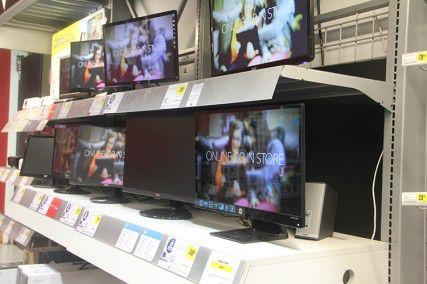
The decision by Boston University trustees to sue Apple, Inc. and several other major technology companies for patent infringement over the summer was motivated in part by the patent’s impending expiration date, officials said.
Officials decided to file complaints before the patent, which BU has rights to, expires in November 2014, said BU spokesman Colin Riley.
“We own the patents and we’re making complaints using the legal process to protect our patents from infringement,” Riley said. “The fact is there’s a timeframe in which you have exclusive benefits to a patent. We’re within that timeframe.”
BU officials filed complaints against tech giants Apple, LG Electronics, Inc. and Hewlett-Packard Company as well as a number of smaller tech companies, alleging that the corporations illegally made use of a patent for insulating films created by electrical and computer engineering professor Theodore Moustakas in 1997.
Complaints were also filed in the spring against Amazon and Samsung for the same case of patent infringement, Riley confirmed. However, he did not outline a specific timeframe for the cases.
“The legal process is underway and ideally it will be resolved in our favor,” he said.
BU officials have licensed and sublicensed the patent to another firm in the past, and have made efforts to make the technology available to others, he said.
The patent, officially named U.S. Patent No. 5,686,738, or “Highly Insulating Monocrystalline Gallium Nitride Thin Films,” was granted to Moustakas in the same year that he developed the technology.
The patent in question is allegedly used as a part of products that include blue LEDs, such as the incredibly popular iPhone 5, iPad and MacBook Air, according to the complaints.
“My sense is that the patent is pretty solid, and it has definitely been used … and they [companies] have made a lot of money,” said tech analyst Roger Kay. “One could argue that their ability to make that money was enhanced by these patents, and BU deserves a piece of that.”
Kay, who is also president of Endpoint Technologies Associates, said BU officials most likely decided to file the complaints this summer after realizing they could initiate the lawsuit for a relatively low price and yet reap major monetary gains.
“What’s really at stake here is a big pile of dollars,” Kay said.
Kay said he expects the tech companies will attempt to settle outside of court, and that the settlement will ultimately depend on the value the patented device holds relative to the companies’ respective products.
“Even though the university has specifically requested Apple and Samsung stop selling products, the likelihood of that happening is extremely low,” he said. “… There’s no reason to take the company that’s making the money and choke it — much better to take some of the company’s money and allocate it towards the rightful patent holder.”
Underlying BU’s decision to sue the tech companies is the competition between colleges and universities, Kay said.
“Some of the motivation for this suit is the economics of higher education, where every university is scrambling for money in every way it can,” he said. “It’s not unique to BU — what is unique to BU is that it has something it can sue over.”
BU School of Law professor Michael Meurer, who specializes in intellectual property rights, said it is unlikely that Apple and the other tech companies are actually at fault.
“I wouldn’t be surprised if these companies developed this technology on their own,” he said.
Due to the fast-paced nature of today’s technology industry, patents are constantly being used and created, Meurer said.
“High-tech products today involve dozens and dozens of inventions, and there may be dozens and dozens of patent owners,” he said. “Also, because patents are relatively easy to get, it’s not surprising to see different parties independently inventing the same technology.”
Meurer said if the patent is actually as valuable as it has been portrayed through BU officials’ various complaints, he is pleased with BU’s reaction.
“I’ve seen this being characterized as a very important invention,” he said. “If that’s the case, then I think it’s great that BU is vigorously enforcing its rights.”












































































































